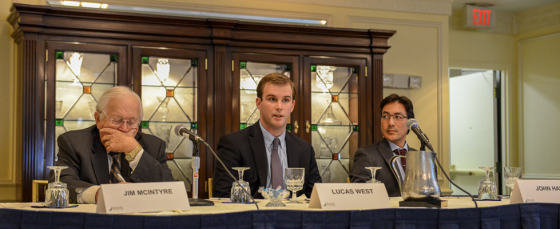The 2018 Lloyd’s City Risk Index was analyzed during the RIMS Risk Forum India in Mumbai, and it notes a possible turning point for the subcontinent’s cities regarding resiliency. In short, Indian cities were rated as weak, but recent government and public investments and campaigns that focus on strengthening infrastructures and people may strengthen those assessments.
During a November 14 morning session, “Assessing the Impact of Natural and Man-made Threats on India’s Economy,” Shankar Garigiparthy, country manager and CEO of Lloyd’s India discussed how much economic output (GDP) cities in India could lose annually as a consequence of various types of rare risk events – such as the Kerala floods this past July – or from more frequently occurring events such as cyberattacks.
He discussed with Risk Management Monitor reasons why he is hopeful for a resiliency turnaround in India and how the combined wills of the government, media, public and business can strengthen the country’s infrastructures and ultimately, its risk ratings.
 RMM: How do India’s cities rank in Lloyd’s City Risk Index?
RMM: How do India’s cities rank in Lloyd’s City Risk Index?
SG: Lloyd’s City Risk Index was published three months ago and we researched 279 cities. We found that a vast majority of cities within the subcontinent of India have been rated as very weak from a resilience point of view. They are at high risk for flood, geopolitical security, market crash, just to name a few.
RMM: What steps are being taken to improve the collective resiliency?
SG: What we have seen in last three or four years is a significant level of investment from the government in terms of building infrastructure. It’s been in the form of roads, bridges, railways, ports, and airports, there has been a significant level of investment. And it seems there is more to come. In the budget, the government has announced more – which is encouraging to see from an infrastructure-building point of view.
However, where we still see a bit of lack is in the area of insurance penetration in the country. That’s where I think insurance companies can be a useful partner and tool to mitigate some of the level of these risks.
RMM: Could this be a chance for insurers to get in on the ground floor of India’s improvement projects?
SG: Yes.
RMM: What incidents have influenced the government to act?
SG: The Chennai floods [in 2015] and the floods in Kerala [in July]. That was a once-in-a-hundred-years occurrence. The entire state was flooded, which I think was the first of its kind. It was completely underwater.
Similarly, the Chennai floods marked another major event. Since then, monsoon has happened but the level of flooding has been managed pretty well.
In the session, we examined the Mumbai floods in 2005. And even last year, there was flooding here for a day, but within a day the water receded pretty quickly and was pumped out. The machinery kicked in and we were able to get out of it pretty well.
RMM: What led to that success?
SG: It was a combination of low tide and the government investing in the necessary pumping mechanisms to actually pump the water back into the sea, and unclog some of the stormwater drains as well. Steps are being taken, slowly but steadily.
RMM: What other institutions are taking measures to build resiliency?
SG: There are a few companies [which I won’t name] that are leading the way and it is encouraging to see that.
The media is also equally playing a fairly significant role as well. That’s also helping because public awareness is something that is critical. The media is raising awareness in terms of the importance of protecting your infrastructure and environment and the need for trees and planting.
RMM: Would you agree that the will to change and improve existing infrastructures is as important as the funding?
SG: I think it’s all there. The government has shown willingness to improve infrastructure. The people have demanded it, so there is a push and a pull coming from both sides. And we are seeing that development happen. Compared to where we were five or ten years ago and where we are now, there’s been a massive change.
There is still more that can be done. I’m not saying that we’re there yet. But it’s not an easy thing, as well.
Given India’s geography and how the political scenario is within the country, we will always be exposed to natural catastrophes.
Flooding is going to be a constant phenomenon for us.
There is investment being done but it’s patchy. In some states there has been fantastic infrastructure investment and in others, less so. I think that has got to be addressed and that’s where the public [should be] demanding more actions there, where infrastructure investment has not been up to the mark.



